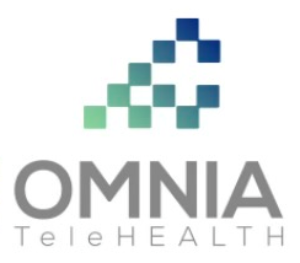Telehealth is no longer a niche service—it’s a vital tool transforming how you access care during illness. Whether managing a sudden infection, chronic condition, or seeking follow-up support, virtual consultations offer convenience, accessibility, and efficiency from the comfort of your home. In this article, we explore how telehealth is improving outcomes and removing traditional barriers to care.
The Rise of Telehealth in Modern Medicine
The telehealth market is expected to grow at a compound annual rate of over 30% through 2027, according to market research. This expansion is driven by high patient demand, regulatory support, and technological innovation. With secure video platforms, digital intake forms, and AI-assisted symptom tracking, your virtual visit now rivals the thoroughness of in-person care—often at a fraction of the time and cost.
Innovations Driving Remote Care
Smart tools like AI-powered symptom checkers, remote diagnostics, and wearable integration make it possible for providers to deliver timely, personalized care. For example, smartwatches can detect irregular heart rhythms, transmitting data in real time during a telehealth session. Electronic health records (EHRs) enable your provider to access your history instantly, enhancing continuity of care.
Convenience and Comfort in Every Visit
Virtual care reduces travel, wait times, and exposure to other illnesses. For those in rural or underserved communities, telehealth bridges critical gaps. A 2022 report by the National Rural Health Association showed that over 25% of patients in remote areas reported improved access to medical care through telehealth.
Emotional and Mental Health Benefits
Patients often feel more relaxed and open in virtual settings. This comfort boosts communication, especially when discussing sensitive topics. Research from the Journal of Telemedicine and Telecare shows higher patient satisfaction in virtual visits compared to traditional ones, citing reduced anxiety and logistical burden.
When Virtual Visits Work Best
Telehealth excels in managing:
- Upper respiratory infections
- Skin conditions (e.g., rashes, acne)
- Mental health support
- Follow-up and medication management
- Minor injuries or pain assessments
While not suitable for emergencies or complex diagnostics, virtual consultations cover a wide range of everyday health concerns. Omnia Telehealth’s licensed providers assess each case individually to determine whether telehealth is appropriate or if in-person care is necessary.
What You Need for a Telehealth Appointment
All you need is a stable internet connection, a smartphone or computer with a camera, and a quiet space. Most platforms are secure, HIPAA-compliant, and simple to navigate. Omnia Telehealth offers technical support and pre-visit guidance to ensure smooth virtual experiences.
Privacy, Security, and Insurance Coverage
Telehealth is protected under strict privacy laws like HIPAA. Most insurance providers—including Medicaid and Medicare—now reimburse for telehealth services. Policies continue evolving to support access and affordability.
Book Your Virtual Appointment
Ready to speak to a provider about your symptoms? Schedule your telehealth visit today with Omnia Telehealth. Our team delivers prompt, professional, and personalized care for a wide range of conditions.
Frequently Asked Questions (FAQ)
Q: What types of sicknesses can be treated via telehealth? A: Common illnesses like colds, flu, UTIs, allergies, skin issues, and mental health conditions can often be addressed virtually.
Q: Can telehealth diagnose and prescribe medication? A: Yes. Omnia Telehealth providers can evaluate symptoms, order labs if needed, and prescribe medications just like in a traditional visit.
Q: What if I need labs or imaging? A: Your provider may refer you to a local lab or imaging center. Results are reviewed virtually and discussed in a follow-up appointment.
Q: Is telehealth covered by insurance? A: Most major insurers, including Medicare, cover telehealth services. Check with your provider to confirm your plan’s coverage.
Q: Is my information safe during a telehealth appointment? A: Yes. All sessions are encrypted and comply with healthcare privacy regulations like HIPAA.
Telehealth is a flexible, powerful tool that expands your access to high-quality care. Explore Omnia’s full range of telehealth services here and take control of your health, no matter where you are.


